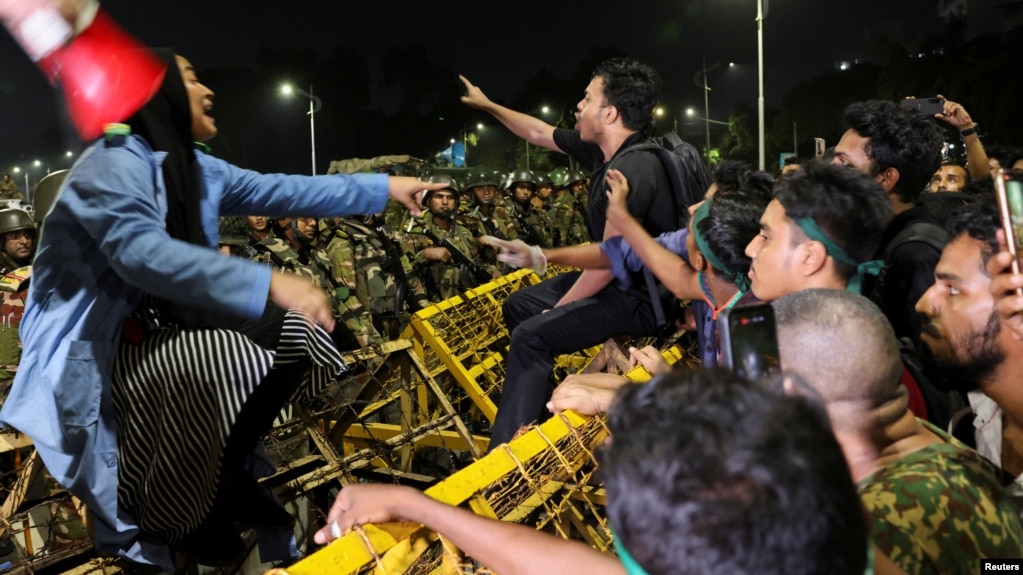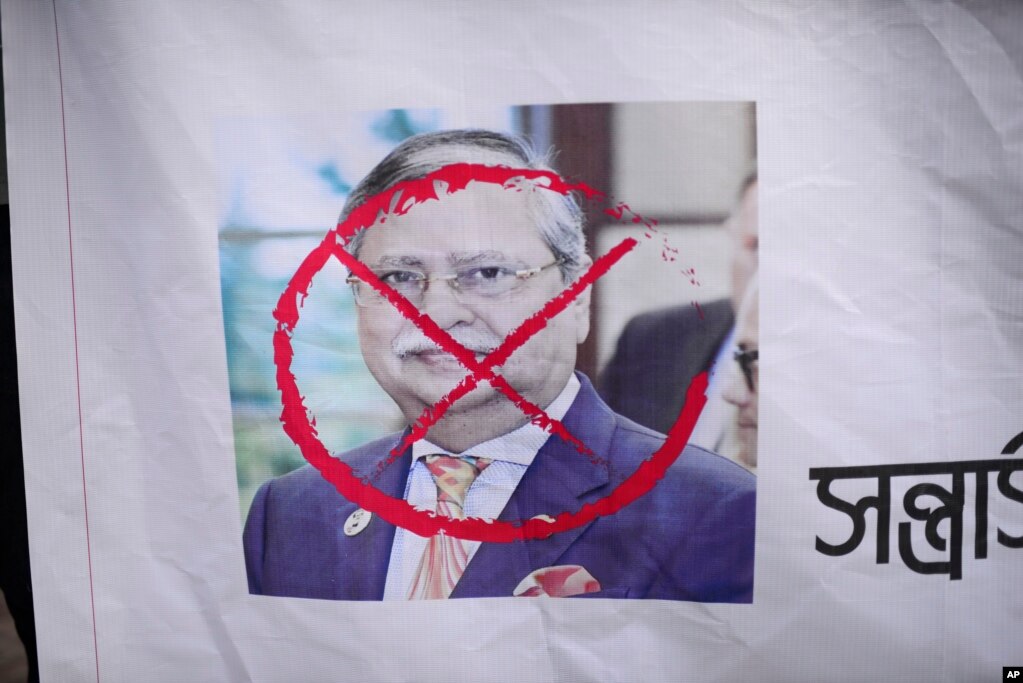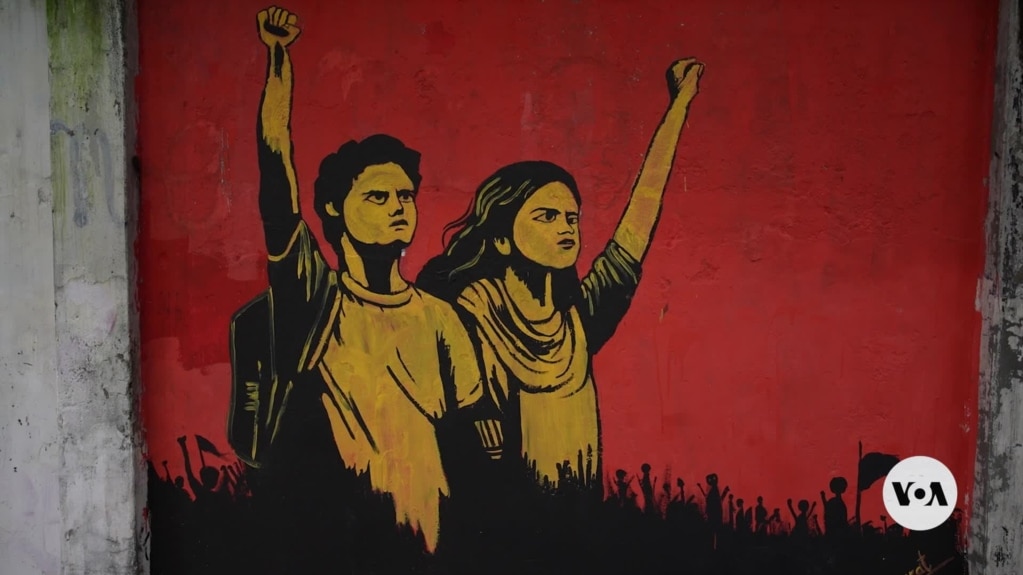
Protesters sit on the barricade placed in front of the Bangabhaban, the residence and workplace of the president, as they shout slogans demanding the resignation of President Mohammed Shahabuddin in Dhaka, Bangladesh, on Oct. 22, 2024.
DHAKA, BANGLADESH —
Political tension in Bangladesh grew Wednesday after a leading student group called for the country\’s figurehead president to resign over his comments that appeared to call into question former Prime Minister Sheikh Hasina\’s resignation in August.
The interim government was expected to hold a Cabinet meeting to discuss the issue Thursday, while student protesters accused President Mohammed Shahabuddin of collaborating with Hasina\’s "fascist" regime.
The Anti-Discrimination Student Movement set a two-day deadline for Shahabuddin to step down. Hundreds of protesters rallied in the capital, Dhaka, on Tuesday and into Wednesday while others attempted to storm the presidential palace. Police and witnesses said security officials used stun grenades to disperse people.

A banner shows a portrait of President Mohammed Shahabuddin as protesters gather to demand his resignation after his comments that he had no documents proving that former Prime Minister Sheikh Hasina had resigned before fleeing the country, in Dhaka, Bangladesh, on Oct. 22, 2024.
Shahabuddin told a Bengali-language newspaper earlier this week that he had not seen Hasina\’s resignation letter as she fled to India in August during a student-led uprising. An interim government led by Nobel laureate Muhammad Yunus took power and formed a government after Hasina stepped down on August 5.
Shahabuddin told the Manab Zamin daily that he only heard about Hasina\’s resignation but had not seen the letter, saying he tried to collect it "many times but failed." He added: "Maybe she did not have the time."
The statement infuriated the Yunus-led government and student activists. It contradicted Shahabuddin\’s address to the nation on August 5, when he said he had received the letter.
Under Bangladesh\’s constitution, an elected prime minister must submit his or her resignation in writing to the president. Shahabuddin was appointed to the post by parliament after Hasina was elected prime minister for a fourth consecutive term in January.
Shahabuddin dissolved parliament before the interim government took power on August 8.
Asif Nazrul, the country\’s law adviser, recently accused Shahabuddin of spreading falsehoods and questioned if he was fit to remain in office.
Experts said the resignation or removal of the president could create a constitutional vacuum. Under the constitution, only parliament can impeach the president.
A senior leader of the Bangladesh Nationalist Party, which is led by Hasina\’s main rival and former Prime Minister Khaleda Zia, met with Yunus on Wednesday.
"If the associates of the fallen autocracy attempt to create any constitutional and political crisis, the pro-democracy and agitating political parties and different organizations will deal with it unitedly," Nazrul Islam Khan, a standing committee member of the party, told reporters.


Young Bangladeshis active in reform, reconstruction after uprising
The code has been copied to your clipboard.
px
px